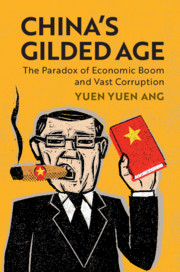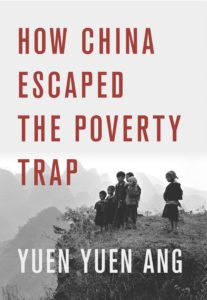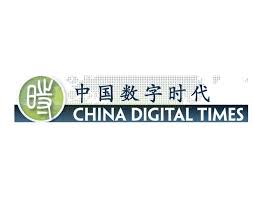 Unlike the old superpower contest between the United States and the Soviet Union, the incipient cold war between China and the US does not reflect a fundamental conflict of unalterably opposed ideologies. Instead, today’s Sino-American rivalry is popularly portrayed as an epic battle between autocracy and democracy, argues Yuen Yuen Ang, Professor of Political Science at the University of Michigan, Ann Arbor, and the author of How China Escaped the Poverty Trap and China’s Gilded Age.
Unlike the old superpower contest between the United States and the Soviet Union, the incipient cold war between China and the US does not reflect a fundamental conflict of unalterably opposed ideologies. Instead, today’s Sino-American rivalry is popularly portrayed as an epic battle between autocracy and democracy, argues Yuen Yuen Ang, Professor of Political Science at the University of Michigan, Ann Arbor, and the author of How China Escaped the Poverty Trap and China’s Gilded Age.
Moreover, the facts seem to suggest that autocracy has won while democracy has fallen flat on its face. But such a conclusion is simplistic and even dangerously misleading, for three reasons, she writes for Project Syndicate:
- First, just as the US under Trump is not representative of all democracies, China under President Xi Jinping should not be held up as a paragon of autocracy. Other democratic societies, such as South Korea and New Zealand, have handled the pandemic ably, and political freedom did not hobble their governments’ ability to implement virus-containment measures. As for examples of autocracies that brought catastrophe upon themselves, look no further than China’s recent history. No modern Chinese leader held more personal power than Mao Zedong, yet his absolute authority led to a massive famine followed by a de facto civil war during the Cultural Revolution….
 Second, there are democracies with illiberal features and autocracies with liberal ones….. If democracies can take an authoritarian turn, the reverse can be true in autocracies. Contrary to popular belief, China’s economic ascent after its market opening in 1978 was not the result of dictatorship as usual; if it had been, Mao would have succeeded long before. Instead, the economy grew rapidly because Mao’s successor, Deng Xiaoping, insisted on tempering the perils of dictatorship by injecting the bureaucracy with “democratic characteristics,” including accountability, competition, and limits on power. …
Second, there are democracies with illiberal features and autocracies with liberal ones….. If democracies can take an authoritarian turn, the reverse can be true in autocracies. Contrary to popular belief, China’s economic ascent after its market opening in 1978 was not the result of dictatorship as usual; if it had been, Mao would have succeeded long before. Instead, the economy grew rapidly because Mao’s successor, Deng Xiaoping, insisted on tempering the perils of dictatorship by injecting the bureaucracy with “democratic characteristics,” including accountability, competition, and limits on power. …- Third, the supposed institutional advantages of China’s top-down rule are both a strength and a weakness. Owing to its revolutionary origins, concentration of power, and penetrating organizational reach, the Communist Party of China (CPC) typically implements policies in the manner of “campaigns” – meaning that the entire bureaucracy and society are mobilized to achieve a given goal at all costs…. But, pressured to do whatever it takes to achieve campaign targets, officials may falsify results or take extreme measures that trigger new problems down the road….RTWT
China’s technology enables authoritarian control and increases dependence on an autocratic state, critics suggest.
 “So, in other words, if you’re using the Chinese technology, your data is not just in those private companies’ hands, such as Google or Apple. Your data is, essentially, in the hands of the Chinese Communist Party,” says Xiao Qiang, founder of National Endowment for Democracy partner China Digital Times, who also heads the University of California at Berkeley’s School of Information’s Counter-Power Lab, an interdisciplinary research group that focuses on digital rights and internet freedom. That’s a risk, he tells PRI’s The World, for those signing on to China’s digital Silk Road —whether having China install a 5G network or a “smart city” surveillance camera system. It’s even a risk at the personal level, he says, for users of Chinese apps like TikTok and WeChat.
“So, in other words, if you’re using the Chinese technology, your data is not just in those private companies’ hands, such as Google or Apple. Your data is, essentially, in the hands of the Chinese Communist Party,” says Xiao Qiang, founder of National Endowment for Democracy partner China Digital Times, who also heads the University of California at Berkeley’s School of Information’s Counter-Power Lab, an interdisciplinary research group that focuses on digital rights and internet freedom. That’s a risk, he tells PRI’s The World, for those signing on to China’s digital Silk Road —whether having China install a 5G network or a “smart city” surveillance camera system. It’s even a risk at the personal level, he says, for users of Chinese apps like TikTok and WeChat.
“The form of generalized surveillance and political repression that most concerns me is the pervasive surveillance of WeChat, which is the chat and everything else app that pretty much all Chinese people who use smartphones are going to be using,” says Graham Webster, a research scholar who edits the DigiChina project at Stanford University’s Cyber Policy Center.
The False Dichotomy of Autocracy and Democracy by Yuen Yuen Ang @ProSyn https://t.co/5qIudn1I8Q
— Democracy Digest (@demdigest) October 28, 2020







